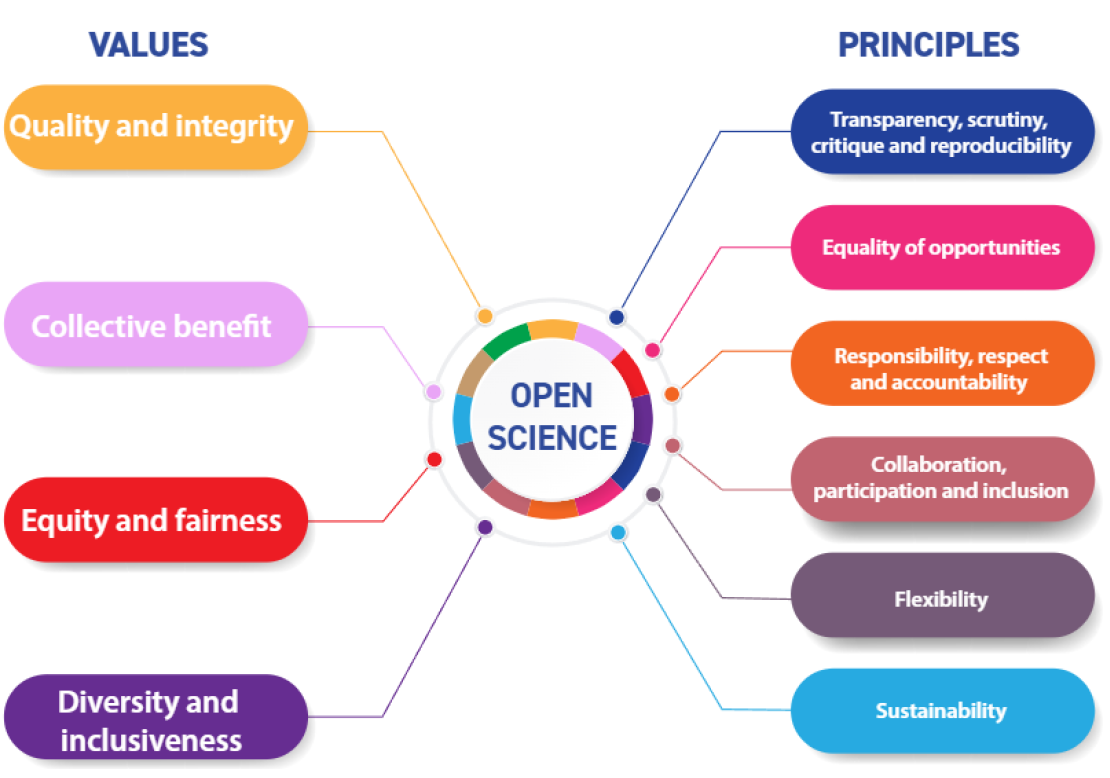Rapid Fire
Open Science
- 27 Sep 2024
- 2 min read
Open science is a set of principles and practices that aim to make scientific research accessible to everyone, ensuring that the production of knowledge is inclusive, equitable, and sustainable.
- It encompasses principles such as free access to publications, availability of datasets, open-source software utilisation, and citizen science engagement.
- The UNESCO Recommendation on Open Science defines and outlines shared values and principles for open science.
- Benefits of Open Science:
- Provides free access to knowledge, broadening research reach and enhancing recognition.
- Fosters collaboration across institutions and countries, enabling joint projects.
- Promotes transparency and reproducibility, improving research quality while maximising the impact of funding through FAIR (Findable, Accessible, Interoperable, and Reusable) principles.
- Ethical Considerations Related to Open Science: Open-access publishing demands transparency from authors, rigorous peer-review from publishers, and adherence to ethical standards to ensure research quality.
- Impact of AI on Open Science: AI boosts data mining and analysis, fostering collaboration and data sharing in open science.
- However, it introduces challenges like bias and reliability issues.
- Challenges to Open Science: Technological barriers, institutional resistance, economic constraints, and legal issues, such as intellectual property and data privacy concerns, hinder the widespread adoption of open science.
Read More: Draft National Science, Technology and Innovation Policy







